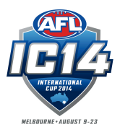
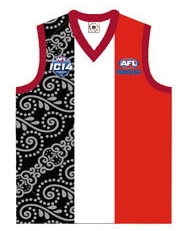 Indonesia may debuting at the International Cup but the country has a footy history that has been passed along to squad given the honour of representing their massive nation. This is a massive step for footy in Indonesia and also the future of footy development for Asian nationals.
Indonesia may debuting at the International Cup but the country has a footy history that has been passed along to squad given the honour of representing their massive nation. This is a massive step for footy in Indonesia and also the future of footy development for Asian nationals.
The Country and Australian Football.
Indonesia is a sovereign state in South East Asia and Oceania. Indonesia is an archipelago comprising some 17,000 islands with a population of over 238 million people, making it the world's fourth most populous country.
Indonesia lies between latitudes 11°S and 6°N, and longitudes 95°E and 141°E. It consists of 17,508 islands, about 6,000 of which are inhabited. These are scattered over both sides of the equator. The largest are Java, Sumatra, Borneo (shared with Brunei and Malaysia), New Guinea (shared with Papua New Guinea), and Sulawesi. Indonesia shares land borders with Malaysia on Borneo, Papua New Guinea on the island of New Guinea, and East Timor on the island of Timor. Indonesia shares maritime borders across narrow straits with Singapore, Malaysia, the Philippines, and Palau to the north, and with Australia to the south. The capital, Jakarta, is on Java and is the nation's largest city.

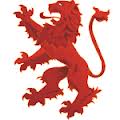 While a number of players from University of Queensland may have come to Australia to study and live it up in the Sunshine state they will be heading to chilly Melbourne next week to represent their countries in Australian football. Thanks to UQAFC Red Lions and author Mike Swann for the following article.
While a number of players from University of Queensland may have come to Australia to study and live it up in the Sunshine state they will be heading to chilly Melbourne next week to represent their countries in Australian football. Thanks to UQAFC Red Lions and author Mike Swann for the following article.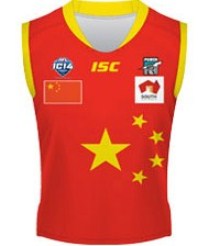
 Indonesia may debuting at the International Cup but the country has a footy history that has been passed along to squad given the honour of representing their massive nation. This is a massive step for footy in Indonesia and also the future of footy development for Asian nationals.
Indonesia may debuting at the International Cup but the country has a footy history that has been passed along to squad given the honour of representing their massive nation. This is a massive step for footy in Indonesia and also the future of footy development for Asian nationals.
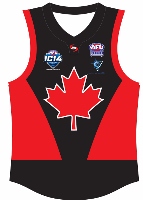 Canada's Northwind are ranked 9th for IC14 and could potentially finish higher depending how they fair against the stronger teams in their pool. With the largest organised league outside of Australia, many would see the Northwind as an underachiever when it comes to the international scene.
Canada's Northwind are ranked 9th for IC14 and could potentially finish higher depending how they fair against the stronger teams in their pool. With the largest organised league outside of Australia, many would see the Northwind as an underachiever when it comes to the international scene.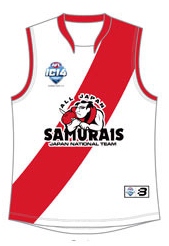 Japan is an island nation in East Asia comprising a stratovolcanic archipelago extending along the Pacific coast of Asia. It lies between 24° to 46° north latitude and from 123° to 146° east longitude.
Japan is an island nation in East Asia comprising a stratovolcanic archipelago extending along the Pacific coast of Asia. It lies between 24° to 46° north latitude and from 123° to 146° east longitude.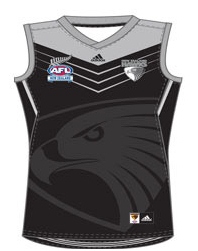 We're closing in on the 2014 fifth instalment of the AFL International Cup and the world's footy nations are gathering for an assault on the Cup. Our previews continue with the 2005 champions and 2008 runner up.
We're closing in on the 2014 fifth instalment of the AFL International Cup and the world's footy nations are gathering for an assault on the Cup. Our previews continue with the 2005 champions and 2008 runner up.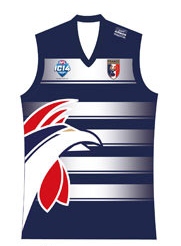 After a successful 2013-2014 season the French Coqs are returning to Australia to take part in their second IC. The team is eager to build on their great results in last year's Axios Euro Cup, where they finished in second place.
After a successful 2013-2014 season the French Coqs are returning to Australia to take part in their second IC. The team is eager to build on their great results in last year's Axios Euro Cup, where they finished in second place.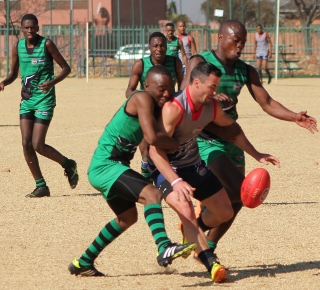 The South African Lions finished 11th in 2002, 8th in 2005 and roared up to 3rd in 2008. Their goal in 2011 was to make the Grand Final but they dropped to 5th. 2014 sees them return to Australia with only a few experienced campaigners and some very young talent. Their goal - make the top four and from there have a crack at winning the tournament.
The South African Lions finished 11th in 2002, 8th in 2005 and roared up to 3rd in 2008. Their goal in 2011 was to make the Grand Final but they dropped to 5th. 2014 sees them return to Australia with only a few experienced campaigners and some very young talent. Their goal - make the top four and from there have a crack at winning the tournament.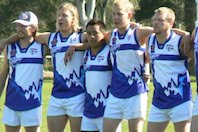


 RSS news
RSS news Twitter
Twitter Facebook
Facebook